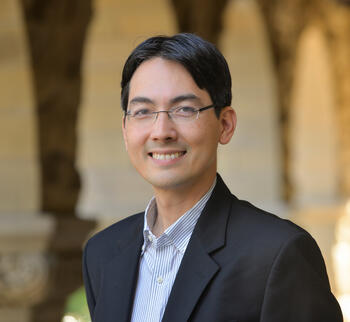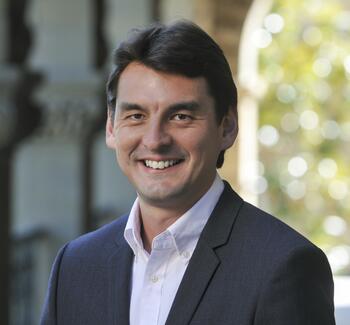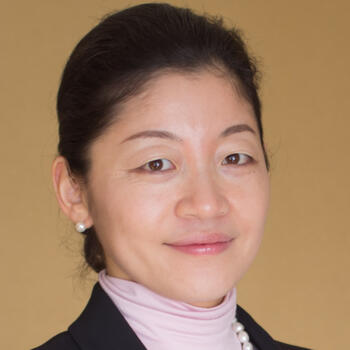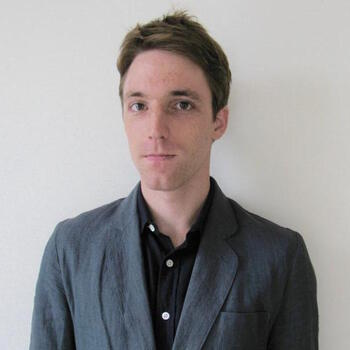This event is co-sponsored with the generous support of the Japan External Trade Organization (JETRO), the Japan Society of Northern California, and the Japanese Chamber of Commerce of Northern California.
Simultaneous interpretation (English <=> Japanese) will be offered. 同時通訳があります。
Ten years have passed since the Great East Japan Earthquake devastated Japan’s northeast. As a country that has experienced a variety of natural disasters throughout its history, Japan has developed various preventive and remedial technologies and social mechanisms, especially since the 1995 Hanshin Earthquake and the 2011 Great East Japan Earthquake. California has had similar experiences with natural disasters, particularly earthquakes, and it has developed its own preventive measures. On the occasion of the tenth anniversary of the Great East Japan Earthquake, this conference features two keynote speakers who have directly dealt with the aftermaths of recent earthquakes in Japan – Makoto Iokibe, who was the Chairman of the Reconstruction Design Council in Response to the Great East Japan Earthquake and is the author of The Era of Great Disasters, and Ikuo Kabashima, who as the Governor of Kumamoto led the recovery efforts from a major earthquake in 2016 and flooding in 2020. The conference will also provide a forum for speakers from Japan and California to learn from each other the cutting-edge approaches toward reducing the damages of natural disasters.
大災害の時代における防災の最前線:東日本大震災から10年を経て
東日本大震災が関東・東北地方に大被害をもたらしてからすでに10年が経とうとしている 。その歴史の中で、多くの自然災害を経験してきた日本は、特に1995年の阪神大震災と2011年の東日本大震災以来、様々な防災・減災のための技術やシステムの開発に取り組んできた。一方で、地震など同じような自然災害を多く経験してきたカリフォルニアでも、独自の災害対策が進められてきた。東日本大震災から10年の節目に当たって、このコンフェレンスでは、東日本大震災復興会議議長として、復興への道のりをリードしてきた五百旗頭真氏(近著「大災害の時代」)と、熊本県知事として、2016年の地震と2020年の水害という大きな災害からの復興を指揮してきた蒲島郁夫氏の二人に基調講演をお願いし、日本の災害と復興の歩みについてご報告いただく。さらには、日本とカリフォルニアそれぞれから防災・減災の最前線で活躍する識者を招き、双方の取り組みについての理解を深め、新たな災害対策の道筋を探ることを目指す。
AGENDA (Pacific Time)
4:00 – 4:15 PM Opening remarks and Greetings from Gi-Wook Shin (Director of Shorenstein APARC, Stanford University), Ambassador Eleni Kounalakis (Lieutenant Governor of California) and Toru Maeda (Consul General of Japan, San Francisco)
4:15 – 5:00 PM Presentation from Cal OES, Keidanren, Fujitsu Laboratories, Research Institute for Earth Science Visualization Technology and JETRO
5:00 – 6:30 PM Keynote speakers: Kumamoto Governor, Ikuo Kabashima
Talk title: Dreams in Adversity & Making the Impossible Possible: The Politics of Disaster Response. 逆境の中にこそ夢がある ~不可能を可能に 災害対応の政治~
Makoto Iokibe, Chairman of the Reconstruction Design Council in Response to the Great East Japan Earthquake
Talk title: On Reconstruction from the Great East Japan Earthquake. 東日本大震災の復興について
6:30 – 7:00 PM Q&A Session
SPEAKERS
Ikuo Kabashima, previously a Professor of Law at the University of Tokyo, became the Governor of Kumamoto Prefecture in 2008 and is currently serving in his fourth term. He displayed his leadership and creative thinking skills when he led the recovery efforts following both the 2016 Kumamoto Earthquake and the 2020 Kyushu Flooding disasters. After graduating from high school in Kumamoto he worked at a local agricultural cooperative. Ikuo Kabashima moved to the United States in 1968 as an agricultural research student and enrolled in the faculty of agriculture at the University of Nebraska in 1971, where he researched preservation techniques for pig semen. He entered a Master’s program at the University of Nebraska in 1974. Following this he pursued a Ph.D in Political Economy at Harvard University. After returning to Japan he became a professor at the Institute of Policy and Planning Sciences at Tsukuba University, and eventually became a Professor of Law at the University of Tokyo in 1997 where he specialized in political process theory and quantitative methods in political science. He was named a Professor Emeritus of the University of Tokyo in 2008. Kabashima has also served as the chairman of the Japanese Association of Electoral Studies and the vice-president of the International Political Science Association (IPSA). Under the guidance of Samuel P. Huntington, he is also credited with achievements for his empirical research on voting behavior and political development theory surrounding political participation in the United States.
2008年4月、東京大学法学部教授から熊本県知事に就任し、現在4期目。2016年の熊本地震、2020年の豪雨災害などで、災害対応の陣頭指揮を執り、創造的復興に手腕を発揮。熊本県の高校を卒業後、地元農協に勤務。1968年に農業研究生として渡米し、1971年ネブラスカ大学農学部に入学。豚の精子の保存方法を研究し、1974年、ネブラスカ大学大学院修士課程に進学。その後、ハーバード大学大学院博士課程に入学。政治経済学を研究し、博士号を取得。帰国後、筑波大学社会工学系教授などを歴任した後、1997年から東京大学法学部教授に着任。専門は、政治過程論、計量政治学。2008年、東京大学名誉教授。日本選挙学会理事長、世界政治学会副会長などを歴任。アメリカではサミュエル・ハンチントンなどの指導を受け、投票行動の実証的研究や政治参加に関する政治発展理論において業績をあげる。
Makoto Iokibe is Chancellor of the University of Hyogo and President of the Hyogo Earthquake Memorial 21st Century Research Institute. He is also Professor Emeritus of Japanese political and diplomatic history, Kobe University and Former President of the National Defense Academy of Japan. After the 2011 Great East Japan Earthquake, Professor Iokibe was appointed Chairperson of the Reconstruction Design Council in Response to the Great East Japan Earthquake, a government-established advisory panel of scholars and experts for formulating governmental reconstruction guidelines. Following the 2016 Kumamoto Earthquake, he served as Chairperson of the Expert Group for Reconstruction and Recovery from the Kumamoto Earthquake. Among his many publications, his volume
Nichibeikankeishi (Yuhikaku, 2008) has recently been translated by the Japan Library and published as “The History of US-Japan Relations: From Perry to the Present” (Palgrave Macmillan, 2017). His most recent book is “The Era of Great Disasters: Japan and Its Three Major Earthquakes” (University of Michigan Press 2020), a translation
of Daisaigai no Jidai(Mainichi Shinbun Shuppan 2016).
1943年兵庫県西宮市生まれ。京都大学法学部卒業。同大学院法学研究科修士課程修了。法学博士。専門は日本政治外交史。神戸大学法学部教授、防衛大学校長、熊本県立大学理事長などを経て、現在(公財)ひょうご震災記念21世紀研究機構理事長、兵庫県立大学理事長。この間、日本政治学会理事長、政府の東日本大震災復興構想会議議長、くまもと復旧・復興有識者会議座長なども歴任。文化功労者。主な著書に「米国の日本占領政策」上下(中央公論社、サントリー学芸賞受賞)、「日米戦争と戦後日本」(講談社学術文庫、吉田茂賞受賞)、「大災害の時代」(毎日新聞出版)ほか多数。
PRESENTERS
Gi-Wook Shin, (Stanford University), is the William J. Perry Professor of Contemporary Korea in Sociology and Senior Fellow at the Freeman Spogli Institute for International Studies. He established Stanford’s Korea Program in 2001 and has been directing the Walter H. Shorenstein Asia-Pacific Research Center at Stanford since 2005. His research concentrates on social movements, nationalism, development, and international relations, with focus on Korea and broader Asia. Shin is the author/editor of over 20 books and numerous articles, including
Divergent Memories: Opinion Leaders and the Asia-Pacific War;
One Alliance, Two Lenses: U.S.-Korea Relations in a New Era;
Cross Currents: Regionalism and Nationalism in Northeast Asia; and
Ethnic Nationalism in Korea. Shin’s current research initiatives include
Global Talent Flows and
Rise of Populism and Nationalism. Before coming to Stanford, Shin taught at the University of Iowa and the University of California, Los Angeles. He holds a B.A from Yonsei University in Korea and M.A and Ph.D from the University of Washington.
Ambassador Eleni Kounalakis, (Lieutenant Governor of California) was sworn in as the 50th Lieutenant Governor of California by Governor Gavin Newsom on January 7th, 2019. She is the first woman elected to the post. From 2010 to 2013, Kounalakis served as US Ambassador to the Republic of Hungary and in 2015 published her acclaimed memoir, “Madam Ambassador, Three Years of Diplomacy, Dinner Parties and Democracy in Budapest” (The New Press). Prior to her service, Kounalakis spent 18 years as an executive at one of California’s most respected housing development firms, AKT Development. Throughout her career, she served on numerous boards and commissions including California’s First 5 Commission, the San Francisco War Memorial, San Francisco Port Commission and the Association of American Ambassadors. Eleni Kounalakis graduated from Dartmouth College in 1989, earned her MBA from U.C. Berkeley’s Haas School of Business in 1992 and holds an Honorary Doctorate of Laws from the American College of Greece. She is married to Dr. Markos Kounalakis and the couple has two teenage sons, Neo and Eon.
Toru Maeda, (Consul General of Japan in San Francisco), began his career at the Ministry of Foreign Affairs of Japan in 1985 and has been in the foreign service for the last 35 years. Prior to his arrival in San Francisco in February 2020, he served as Minister / Deputy Chief of Mission of the Embassy of Japan in Myanmar. Over the past decade, he has held several senior positions in both overseas and domestic assignments, including Director General and subsequently Senior Vice President of the Japan International Cooperation Agency (JICA), Minister / Head of Chancery of the Permanent Mission of Japan in Geneva, and Minister in charge of economic affairs of the Embassy of Japan in Indonesia. His other postings in the Ministry of Foreign Affairs include Director positions in the International Cooperation Bureau and Intelligence and Analysis Service. He received his B.A. in Law from the University of Tokyo and M.S. in Foreign Service from Georgetown University.
Ichiro Soné, (Executive Vice President, JETRO), was appointed Executive Vice President of the Japan External Trade Organization in October 2019. Previously, Mr. Soné served as Director-General of JETRO Osaka, overseeing the Kansai and Hokuriku regions. Before Osaka, he served as Chief Executive Director of JETRO Chicago, where he oversaw the office’s activities designed to facilitate trade and investment between Japan and 12 Midwestern states. Mr. Soné joined JETRO in 1988 after graduating Doshisha University in Kyoto with a bachelor’s degree in art and aesthetics. He has a deep knowledge in international business through working in the Trade Fair Department and Invest Japan Department at JETRO Headquarters in Tokyo, and the North America Bureau of the Ministry of Foreign Affairs. His previous overseas postings were JETRO offices in Los Angeles, San Francisco and Chicago.
Yasuhiro Uozumi, (Executive Director of Keidanren USA),
has been Executive Director of Keidanren USA since June 2018. Mr. Uozumi joined Keidanren more than two decades ago. In the course of his career there, he is noted for his expertise on such issues as accounting, taxation, industrial policies, transportation and emerging markets, especially in Southeast Asia and Latin America. He also served as Secretary to the Keidanren Chairman. Mr. Uozumi earned his B.A. in Economics at the University of Tokyo and his MBA from Said Business School at the University of Oxford. He also conducted research on accounting at the Program on U.S.-Japan Relations of the Weatherhead Center for International Affairs at Harvard University. He is a Certified Public Accountant. Keidanren is committed to the realization of Society 5.0 for SDGs.
Lori Nezhura, (Cal OES Deputy Director of Planning, Preparedness, and Prevention), has worked for the State of California since 2006. She is currently the Deputy Director of Planning, Preparedness, and Prevention, a role which includes oversite of the agency’s seismic hazards branch, dam safety, radiological preparedness, and statewide all-hazards emergency and continuity planning efforts. Additionally, she oversees the California Specialized Training Institute, a statewide enterprise with responsibility for supporting training, exercises, and education in wide variety of areas including, but not limited to, emergency management, public safety, homeland security, hazardous materials, disaster recovery, and crisis communications. Prior to her current role, Lori spent almost six years as the Legislative Coordinator at the California Governor’s Office of Emergency Services and nine years at the California Student Aid Commission as Legislative Director, Program Manager, and various Analyst roles. Lori received her baccalaureate degree from Arizona Christian University in Phoenix and her post-baccalaureate teacher certification at Arizona State University in Tempe. After receiving her teaching credential, she moved to Saitama Prefecture in Japan for two years to teach English as a Second Language. Upon her return to the United States, she taught elementary classes at Carden Christian Academy for ten years before going into state service.
Dr. Akihiko Shibahara, (CEO, Research Institute for Earth Science Visualization Technology Co.,), is a geologist, paleontologist, and 3D-CAM (computer-aided manufacturing) engineer. He received a Doctorate degree of Science from Tsukuba University, and he worked as a curator at the Geological Museum in AIST. His recent research has focused on the visualization of earth science, such as underground data or hazard maps using 3D modeling techniques. In 2016, he established the Institute for Earth Science Visualization Technology as an AIST Start-ups to implement his research activity. He is also working at the Institute of Dinosaur Research Investigation in Fukui Prefectural University as a Visiting Professor to visualize the spatial relationship between geology and paleontology. Earth Science Visualization Technology established several techniques of building up finely-detailed 3D miniatures to visualize geological information and hazard maps.
Dr. Yusuke Oishi,
(Fujitsu Laboratories LTD.), is a project director of Artificial Intelligence Laboratory at Fujitsu Laboratories LTD. Since 2014 he has also been a specially appointed associate professor of International Research Institute of Disaster Science (IRIDeS), Tohoku University. He joined Fujitsu Laboratories Ltd. in 2007 and has been engaged in research on simulation, high performance computing, and artificial intelligence. From 2010 to 2014, he was a visiting researcher at Imperial College London, where he was engaged in tsunami research using 3D fluid simulation. In collaboration with Tohoku University, the University of Tokyo, and Kawasaki City, he and his collaborators started a joint project in 2017 for disaster mitigation utilizing cutting-edge ICT such as artificial intelligence and supercomputing. The project aims to realize effective disaster mitigation by repeatedly implementing technology development, technology evaluation by citizens, and technology improvement.
MODERATOR
Kiyoteru Tsutsui, (Stanford University), is Henri H. and Tomoye Takahashi Professor and Senior Fellow in Japanese Studies at the Walter H. Shorenstein Asia-Pacific Research Center at Stanford University, where he is also Director of the Japan Program, a Senior Fellow of the Freeman Spogli Institute for International Studies, and a Professor of Sociology. He is the author of Rights Make Might: Global Human Rights and Minority Social Movements in Japan (Oxford University Press, 2018), co-editor of Corporate Responsibility in a Globalizing World (Oxford University Press, 2016) and co-editor of The Courteous Power: Japan and Southeast Asia in the Indo-Pacific Era (University of Michigan Press, forthcoming 2021).




















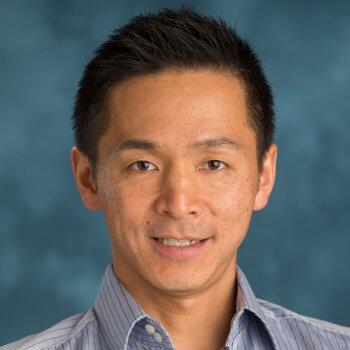


 Takeo Hoshi (University of Tokyo), is Professor of Economics at the University of Tokyo. His research area includes corporate finance, banking, monetary policy and the Japanese economy. Hoshi is also Co-Chairman of the Academic Board of the Center for Industrial Development and Environmental Governance (Tsinghua University). His past positions include Henri and Tomoye Takahashi Senior Fellow at the Freeman Spogli Institute for International Studies at Stanford University and Pacific Economic Cooperation Professor in International Economic Relations at University of California, San Diego. He received the 2015 Japanese Bankers Academic Research Promotion Foundation Award, the 2011 Reischauer International Education Award of Japan Society of San Diego and Tijuana, the 2006 Enjoji Jiro Memorial Prize of Nihon Keizai Shimbun, and the 2005 Japan Economic Association-Nakahara Prize. His book Corporate Financing and Governance in Japan: The Road to the Future (MIT Press, 2001) co-authored with Anil Kashyap received the Nikkei Award for the Best Economics Books. He co-authored The Japanese Economy (MIT Press, 2020) with Takatoshi Ito. His book on the political economy of the Abe administration co-edited with Phillip Lipscy is published from Cambridge University Press in 2021. Other publications include “Will the U.S. and Europe Avoid a Lost Decade? Lessons from Japan’s Post Crisis Experience” (Joint with Anil K Kashyap), IMF Economic Review, 2015; and “Zombie Lending and Depressed Restructuring in Japan” (Joint with Ricardo Caballero and Anil Kashyap), American Economic Review, December 2008. Hoshi received his B.A. from the University of Tokyo in 1983, and a Ph.D. in Economics from the Massachusetts Institute of Technology in 1988.
Takeo Hoshi (University of Tokyo), is Professor of Economics at the University of Tokyo. His research area includes corporate finance, banking, monetary policy and the Japanese economy. Hoshi is also Co-Chairman of the Academic Board of the Center for Industrial Development and Environmental Governance (Tsinghua University). His past positions include Henri and Tomoye Takahashi Senior Fellow at the Freeman Spogli Institute for International Studies at Stanford University and Pacific Economic Cooperation Professor in International Economic Relations at University of California, San Diego. He received the 2015 Japanese Bankers Academic Research Promotion Foundation Award, the 2011 Reischauer International Education Award of Japan Society of San Diego and Tijuana, the 2006 Enjoji Jiro Memorial Prize of Nihon Keizai Shimbun, and the 2005 Japan Economic Association-Nakahara Prize. His book Corporate Financing and Governance in Japan: The Road to the Future (MIT Press, 2001) co-authored with Anil Kashyap received the Nikkei Award for the Best Economics Books. He co-authored The Japanese Economy (MIT Press, 2020) with Takatoshi Ito. His book on the political economy of the Abe administration co-edited with Phillip Lipscy is published from Cambridge University Press in 2021. Other publications include “Will the U.S. and Europe Avoid a Lost Decade? Lessons from Japan’s Post Crisis Experience” (Joint with Anil K Kashyap), IMF Economic Review, 2015; and “Zombie Lending and Depressed Restructuring in Japan” (Joint with Ricardo Caballero and Anil Kashyap), American Economic Review, December 2008. Hoshi received his B.A. from the University of Tokyo in 1983, and a Ph.D. in Economics from the Massachusetts Institute of Technology in 1988. 